Q. Are you affiliated with any political, religious, economic, or philosophical group or ideology?
No. We are simply a group of regular people who want to live where we know our neighbors, have fun, and support each other in whatever way feels right for each person. The only organization we’re associated with is the Cohousing Association of the United States.
Q. How have you dealt with Covid?
When Covid began, we suspended common meals and indoor gatherings, and moved our meetings to Zoom.
One big advantage of Ravens’ Roost during the pandemic has been the level of support and safe socializing. We’ve agreed that if anyone gets the virus, we’ll set food and other requested items outside their door and check on them by phone. Outdoors we’ve enjoyed socializing safely. Aside from daily chatting, we’ve had socially-distanced take-out (or bring-your-own) dinners on our large patio with BBQ, worked in our gardens at distances that still allow for conversation, gone for walks and hikes, and have even had outdoor dance parties with music played on portable speakers! So we haven’t feel as isolated as we would have in our former lives, when we drove into attached garages and mostly stayed inside our own houses.
Although we haven’t pried into each other’s vaccination status, every resident who speaks of Covid shares a cautious, science-based approach to the pandemic. All who shared their intent were eager to get vaccinated as soon as eligible — back when appointments were hard to get, residents let each other know when more opened up.
It’s a safe bet that all residents over age 12 are now vaccinated, and no one at Ravens’ Roost is aware of having had the virus. Because of the rise of the Delta variant, we currently require that everyone wear a mask in the Common House and workshop building, whether vaccinated or not. Right inside the doors are free masks and hand sanitizer.
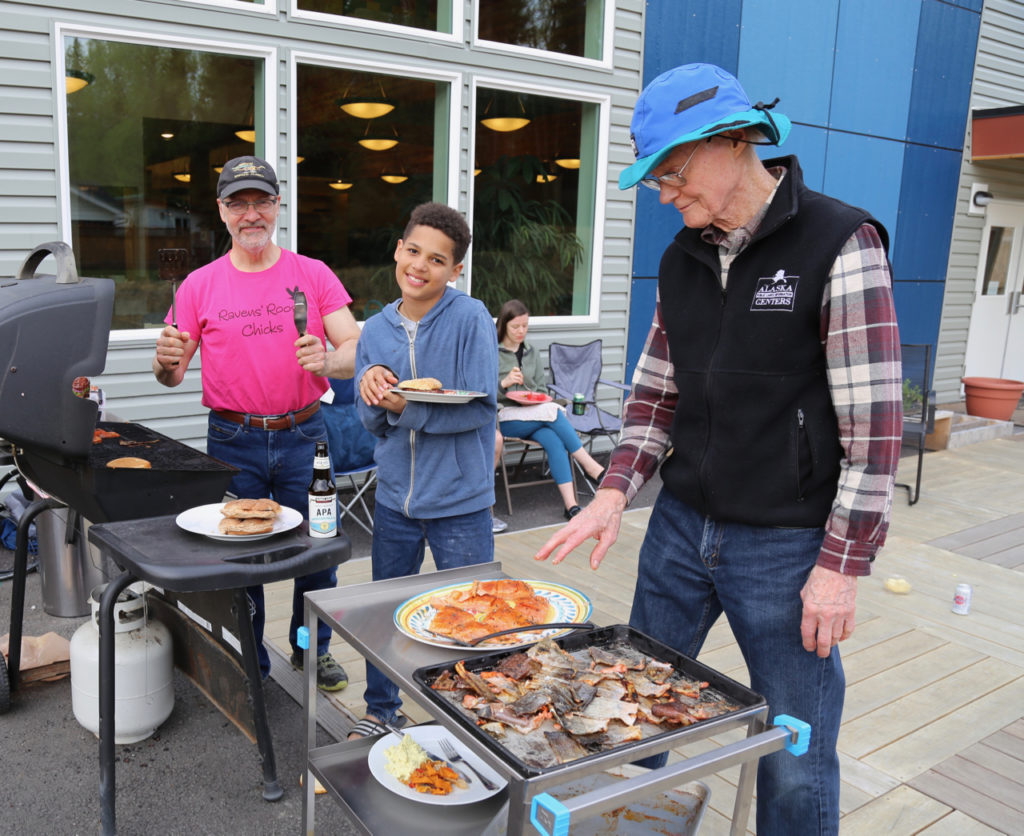
Q. Do you allow pets?
Yes, we allow pets, and require that pet owners be responsible.
Q. Who owns the land?
As with any condominium association, the land is owned on a pro-rata basis by each homeowner.
Q. How much are the Home Owner Association (HOA) dues and what do they include?
HOA dues include heat, water, garbage, curbside recycling, snow removal from our private road and parking areas, other common space expenditures (Common House, Workshop, and grounds), and a future replacement cost account. Homeowners pay for their own electricity, internet, and cable. Depending on the size of the home, HOA fees fall between $300 – $396 per household per month.
Q. What if I don’t feel like socializing all the time?
Few of us feel like socializing all of the time. At Ravens’ Roost there is no expectation to be social at any particular time — all residents have the choice of enjoying the privacy of their own home (and in common areas that are not currently being used by others), or enjoying whatever happens to be going on in the neighborhood. How much you socialize is up to you. Cohousing is actually very popular with introverts, because there’s no effort required to socialize; it’s “built in” and happens naturally because you know everyone, and it’s very easy and acceptable to go home… and come back later if you like. Meanwhile, extroverts can always find someone to talk to.
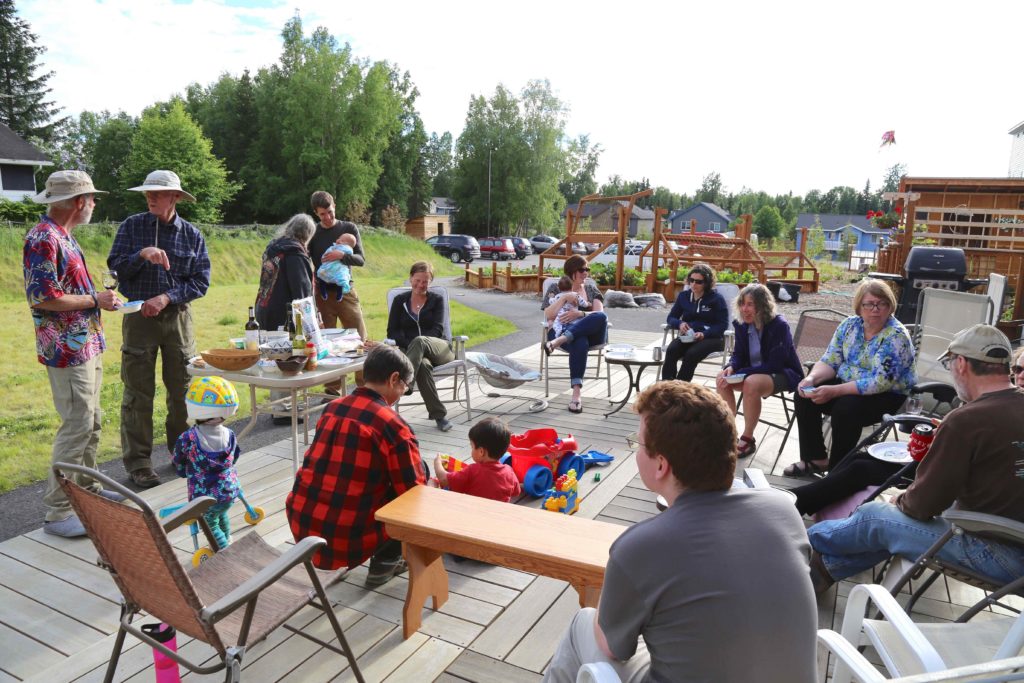
Q. How do 35 households make decisions?
Most decisions are delegated to teams of about 4-10 residents that focus on particular areas (e.g., Buildings & Grounds, Common House, Gardens/Orchard/Plants/Animals [“GOAT”], etc.). The teams collect input and create proposals for the entire group to review and either approve or send back for modification.
Decisions that affect the whole community are made by consensus. Consensus is not necessarily unanimity; it’s one that everyone can live with. In the consensus decision-making process, all voices are heard and valued, which often results in more information being considered. This helps prevent the poor decisions for which conventional Homeowner Association Boards are notorious. Modifications are sometimes suggested by those who are not satisfied with the original proposal. These collaborative solutions can have an elegance and creativity that is only possible through collective wisdom. The participatory process also creates more buy-in to the final decision. Controlling people tend not join cohousing because they’re not comfortable with the concept of “power-with” instead of “power-over.”
Q. Do you have garages?
Yes. Each home comes with one open air parking spot and one space in a heated garage with a large storage loft.
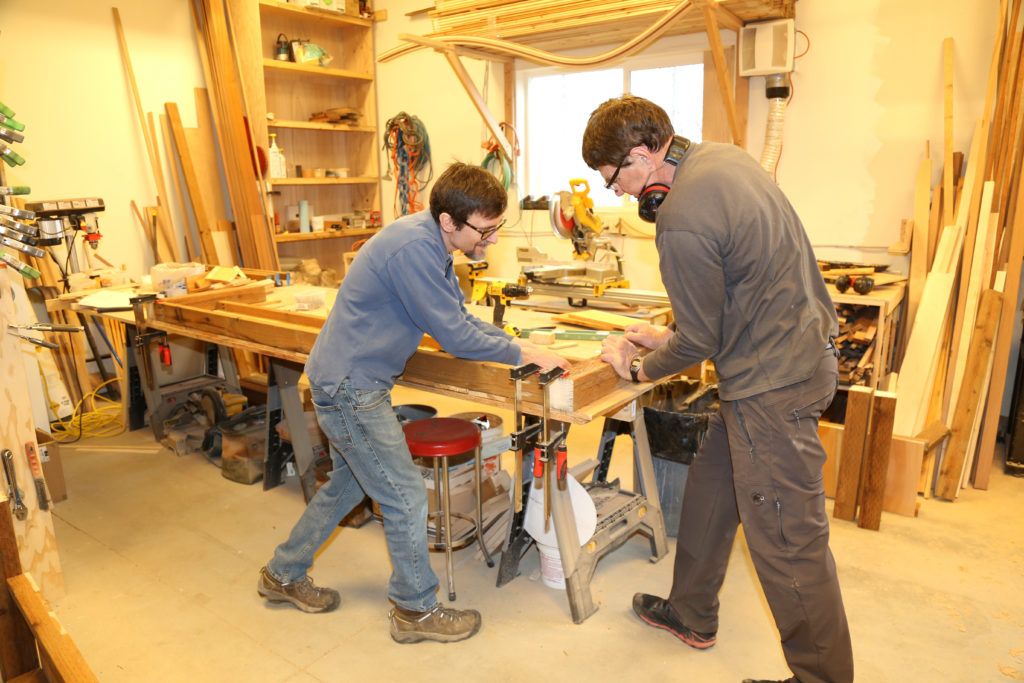
Q. You say that residents maintain the neighborhood. How does that work?
In a variety of ways, we all participate in maintaining the neighborhood, just like you do at your own home right now. We don’t currently have defined expectations for participation; people pitch in based on the needs of the neighborhood and the skills they have. Residents decide what kind of work they do.
[When there is no pandemic]: For common meals (which are optional), we have a custom web site where we can sign up not only to eat, but also to help cook or wash the dishes.
Some of us clean the common house, remove snow or go to landscaping work parties to plant or maintain trees, shrubs, and flowers. Others organize the reservations for the guest rooms, do small repairs or maintenance, or update this web site.
For larger projects we have two 4-hour work days each year. Residents with fewer physical capabilities help with planning, purchasing supplies, watching kids, providing drink and food to those doing the heavy lifting, put away tools afterward, and so on.
We now have a “pay or play” system for cleaning the common house: you can choose to sign up for a certain number of hours of cleaning, or choose to be part of the group that pays for a hired cleaner.
Q. Who cooks the shared meals? [when there is no pandemic]
Meal teams include a head cook, 1-3 assistant cooks, and a couple of dish washers (we have a commercial dish washer that makes it much easier).
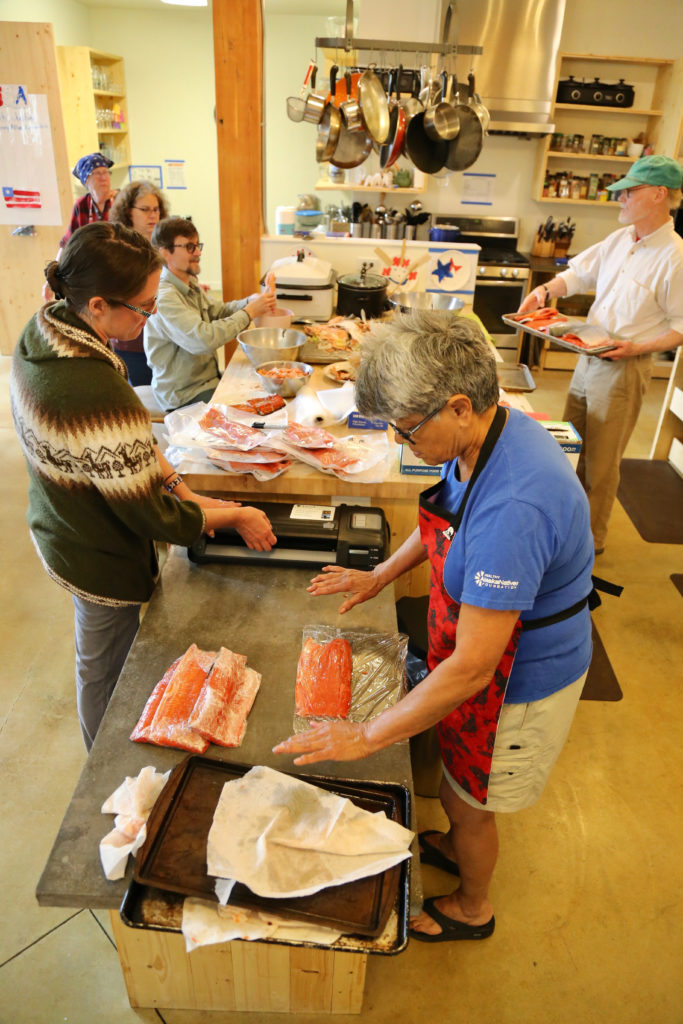
Q. Are residents required or expected to eat in the Common House?
No, shared meals are optional. When there’s no pandemic, we have 2-3 optional, shared dinners per week. Residents sign up a few days beforehand so that the head cook knows how much food to buy. The cooks accommodate food allergies / sensitivities / preferences.
Q. How extensive are your gardens?
We have some serious gardeners and permaculture enthusiasts in our group, and others who are eager to learn. The main garden is located south and slightly west of the Common House, with smaller ones around the property. We have both community gardens that produce vegetables and herbs for common meals as well as private gardens tended by individuals who grow their own food. We have quite a bit of edible, perennial landscaping, and we compost our food waste. We plan to have an orchard, root cellar, and greenhouse in the future.
Q. Are kids welcome?
Absolutely, we love kids, and we’d like to have more! We are a multi-generational neighborhood currently comprised of little kids, teenagers, 20-somethings, elders, and all ages in between. Cohousing presents the wonderful opportunity to have true friends of all ages.
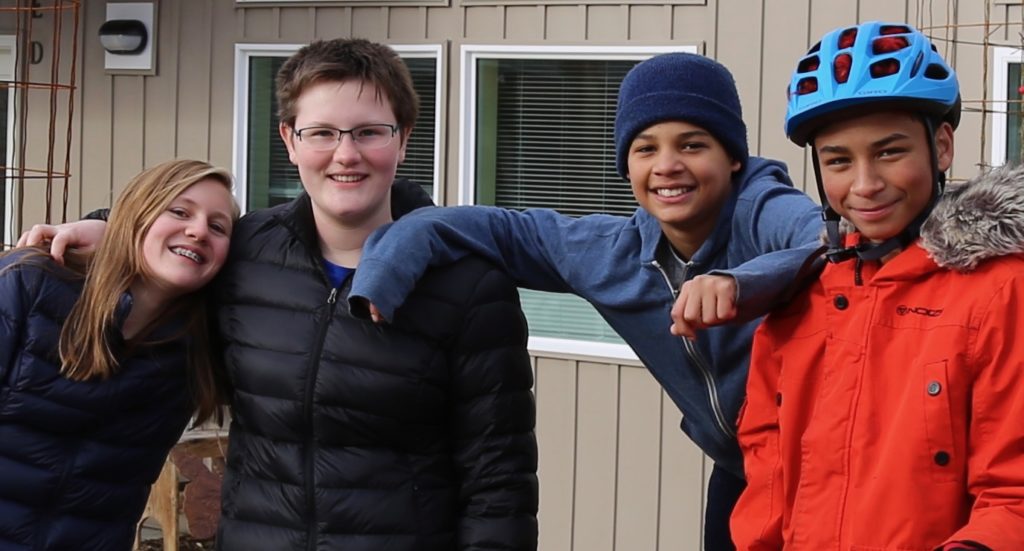
Q. Which schools would kids attend?
Public schools are Trailside Elementary, Hanshew Middle School, and Service High School.
There’s a Montessori School within easy walking distance of Ravens’ Roost, and Pacific Northern Academy is located at Abbott and Lake Otis, just half a mile from us.
Q. Parking looks like it’s a ways to the unit I’d like to live in. How will I get my groceries to my house?
We have carts to take things to and from our cars. Walking to and from our cars is one way that we spontaneously run into each other, offering opportunities to socialize. Even if it’s just a few words, it’s amazing how much our connections are strengthened by face-to-face interaction.
Q. What if I don’t like all of my neighbors?
Well, don’t be surprised. You probably wouldn’t expect to like every single person in a group of 35 households. There will naturally be some people with whom you get along better than others. But when that person who slightly annoys you picks you up at the airport or helps your daughter with her calculus homework, he or she might suddenly not seem so bad. You may even grow to like people whom you had earlier judged poorly. We’re learning how common it is in our culture to make inaccurate negative assumptions about people. Some say that cohousing is the biggest personal growth experience you’ll ever have.
Q. If I buy a home and decide to sell later, how would this work?
A. Legally, we are a condominium association. So you would sell your home just like you would sell any other condo, except that Ravens’ Roost Cohousing would want to educate any potential buyer about cohousing and the shared intention to get to know one’s neighbors. As the owner, you would decide on price and other terms.
